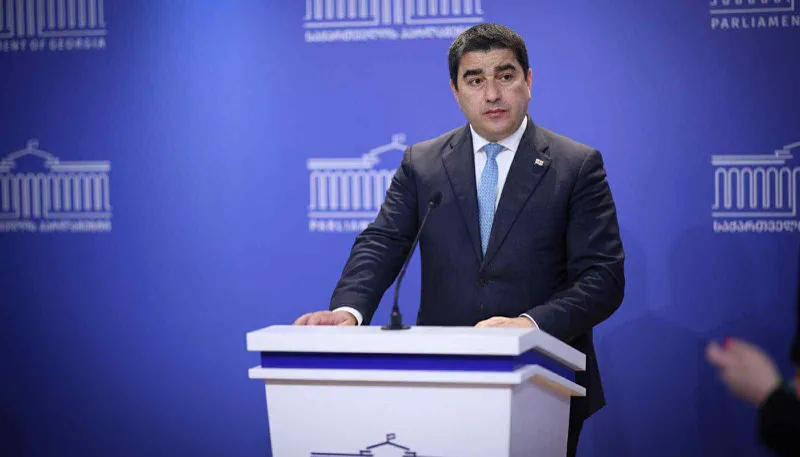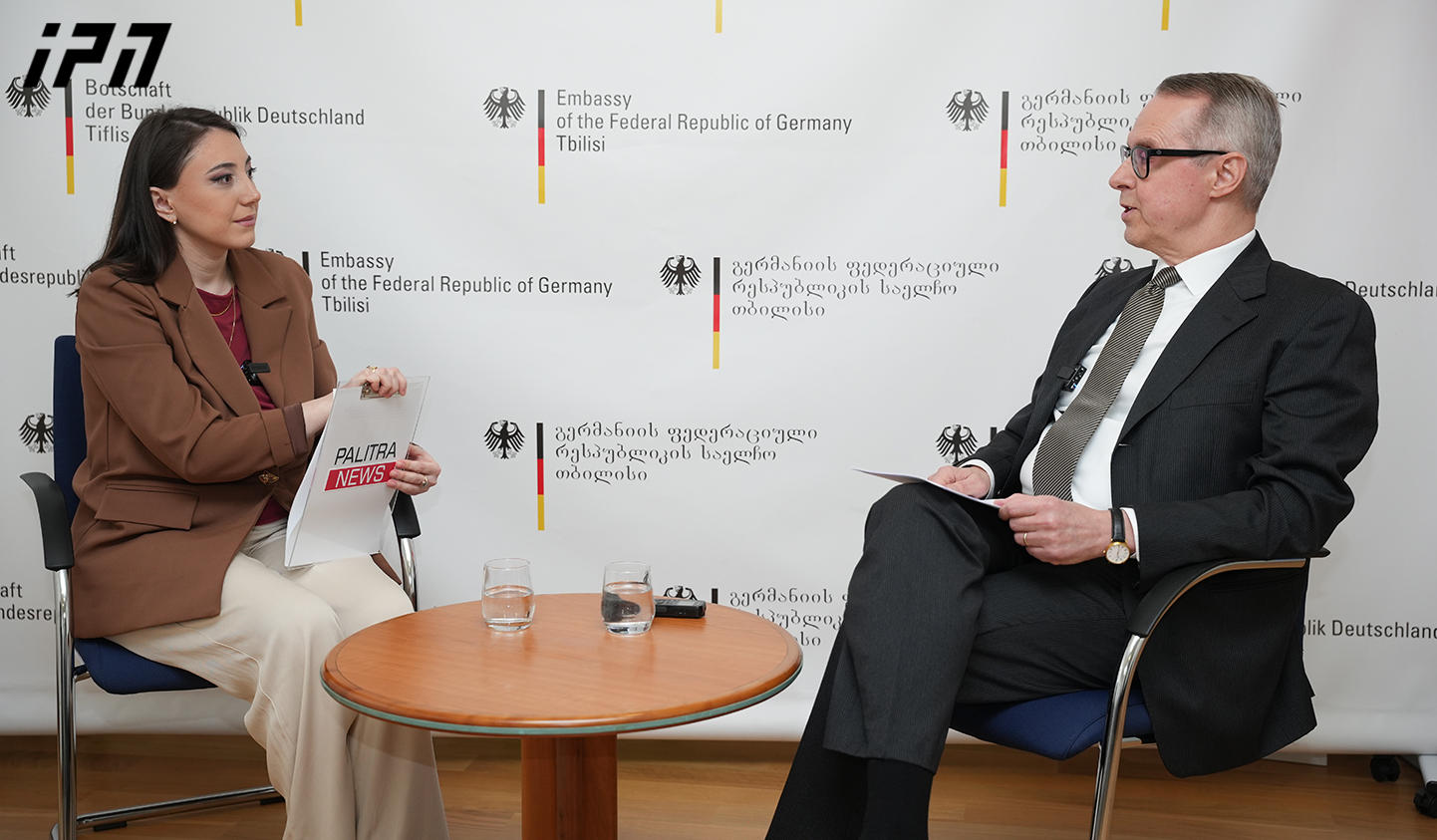Shalva Papuashvili: Herczyński demanded the "release of those unjustly detained" – if violence is committed in the name of the European Union, that violence is deemed just, while punishment is unjust - He calls their detention unjust because he justifies the violence

Yesterday, the EU Ambassador Pavel Herczyński demanded the "release of those unjustly detained." If violence is committed in the name of the European Union, then your violence is pro-European, meaning just, while your punishment is unjust—Parliament Speaker Shalva Papuashvili wrote about this on Facebook, responding to the statement by EU Ambassador Pavel Herczyński.
According to him, Herczyński is justifying violence.
“Yesterday, the EU Ambassador Pavel Herczyński demanded the ‘release of those unjustly detained.’
One thing we must understand: when Pavel Herczyński says that someone who threw a Molotov cocktail, aimed pyrotechnics, or assaulted a police officer with fists is ‘unjustly detained,’ he is not saying that one didn’t throw the Molotov or that the other didn’t assault with fists. He calls the detention unjust because he justifies that violence—yes, the Molotov had to be thrown, and that’s why it was thrown; yes, the fists had to be used, and they were; yes, the pyrotechnics had to be fired, and it would have been better if they were aimed more accurately—that seems to be what he is saying.
That’s why you won’t find a single—let me emphasize, not a single—statement from him condemning this street violence. Yet, what prevents him from saying that attempting to burn a person alive is, in the ambassador’s own lexicon, disgusting? But no, not even a single twisted word. Not even after this post.
Disrespect for human rights and turning values upside down has become a sad daily reality in the rhetoric of foreign politicians and diplomats. This disrespect for human rights has made the attacker, rather than the victim, the measure of violation. Declare that you are ‘pro-European,’ and then a Molotov cocktail and fists become legitimate weapons of struggle. Declare that your goal is ‘grand,’ and then all your means are justified (how can you not recall the Soviet Union here?).
This is what we are truly dealing with. If you commit violence in the name of the European Union, then your violence is pro-European, meaning just, while your punishment is unjust. They said this even back when Brussels funded the ‘I threw’ campaign and, in broad daylight, with MEPs and diplomats, practically declared a violent person a national hero. Have you ever seen the EU Ambassador express regret over this? No. Meanwhile, among the people, the term ‘pro-European violence’ has already emerged, and watching this situation is truly heartbreaking.
P.S. And here’s the standard sentence to prevent the expected victimization. No, this is not an attack on the ambassador; this is legitimate criticism that requires self-reflection and a response,” Papuashvili writes.
For reference, the EU Ambassador to Georgia, Pavel Herczyński, named the “only way to resolve the crisis and return to the EU path” as “stopping repressions, releasing those unjustly detained, repealing repressive legislation, and engaging in open dialogue.”
According to him, the Georgian authorities have until the end of August to respond and take measures. Additionally, the diplomat stated that there is a risk that the most tangible benefit of EU integration—visa-free travel for all Georgian citizens—could soon be lost.
